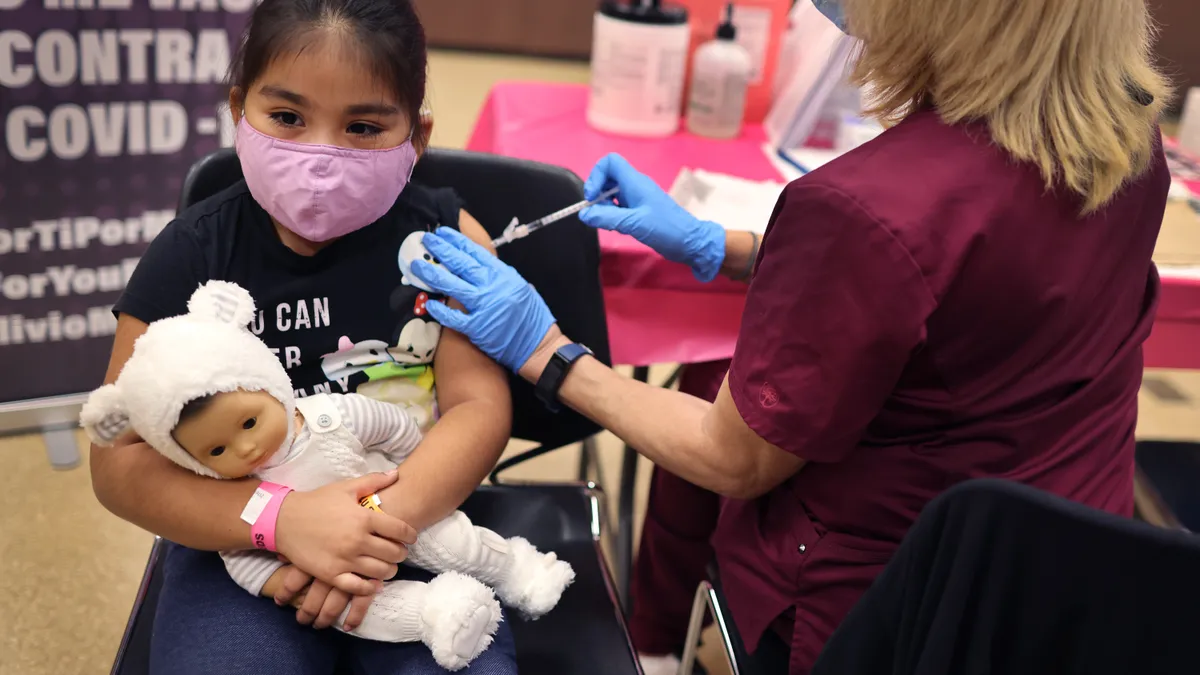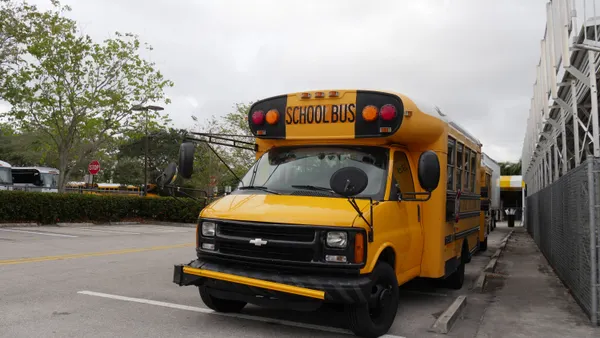Dive Brief:
-
Fewer kindergartners are getting routine vaccinations compared to pre-pandemic times, dipping from 95% in the 2019-20 school year to less than 93% in 2023-24, according to data from the Centers for Disease Control and Prevention.
-
Meanwhile, the vaccination exemption rate for this group rose from 2.5% in 2019-20 to 3.3.% — the highest level ever reported — last year. Exemptions increased in 41 states and territories, and surpassed 5% in 14 of them. That amounts to more than 126,000 kindergartners with an exemption from at least one vaccination for the 2023-24 school year.
-
The combined decrease in routine shots and increase in exemptions "jeopardize" the 95% kindergartner vaccination rate goal for measles, mumps and rubella by 2030 set by the U.S. Department of Health and Human Services.
Dive Insight:
Declining vaccination coverage is "setting the stage for accumulation of clusters of undervaccinated children, which can lead to outbreaks," CDC said in its Oct. 17 vaccination update.
The COVID-19 pandemic triggered a wave of anti-vaccination efforts by parents who opposed them for a mix of ideological and religious reasons. When the COVID-19 vaccine became available and some schools required them for students to return to in-person learning, some parents and parent-led advocacy groups protested at school board meetings, by keeping their kids home from school, among other efforts.
After a decade of 95% nationwide vaccination coverage, the vaccination rate for kindergartners declined to about 93% over the 2020-21 and 2021-22 school years.
Then, CDC said, "These declines persisted after impacts of the COVID-19 pandemic diminished."
A CDC survey of parents in 2024 showed that 8.3% disagreed with the statement that school and child care “vaccination requirements for children are important and necessary." An additional 15.2% of parents said they had no opinion on the issue.
"These results could indicate changes in attitudes toward routine vaccination transferring from hesitancy about COVID-19 vaccination, or toward any vaccine requirements arising from objections to COVID-19 vaccine mandates, as well as a potential for larger decreases in coverage or increases in exemptions," CDC said.
The agency said states and schools can ensure students begin the school year fully vaccinated by:
- Reducing the types of exemptions available.
- Working with parents to avoid invoking exemptions because of difficulty meeting vaccination requirement deadlines.
- Assuring that school practices are consistent with state laws.
- Enforcing school vaccination requirements and following up with undervaccinated students.
- Educating parents about the safety and effectiveness of vaccinations — and the risks of not vaccinating their children.













